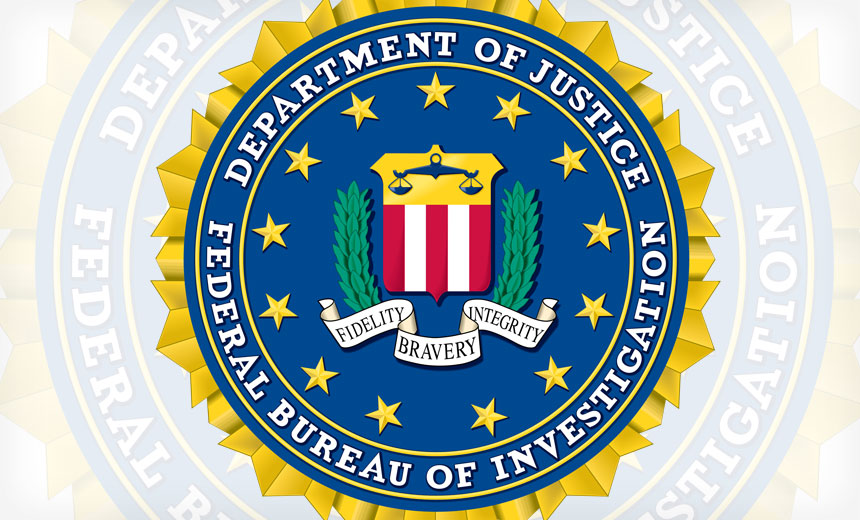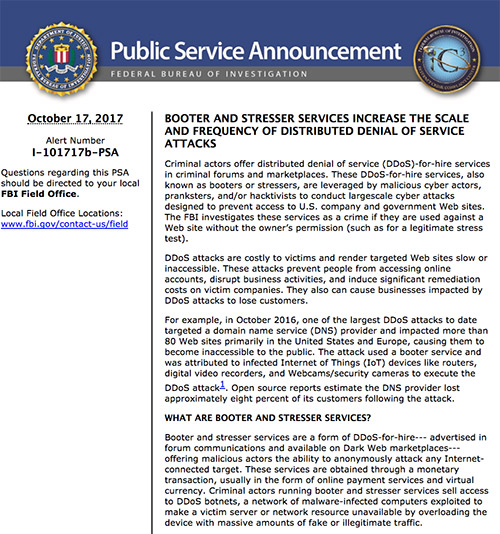FBI to DDoS Victims: Please Come Forward
FBI to DDoS Victims: Please Come Forward

Have you been the victim of a distributed denial-of-service attack? If so, the FBI wants you to please come forward.
The FBI is asking anyone in the United States who's been the victim of a DDoS attack to file a report with the local FBI field office or via the website of the Internet Crime Complaint Center, or IC3. That's a joint partnership between the FBI, the National White Collar Crime Center and the Bureau of Justice Assistance, which was set up to receive and investigate internet-related crime complaints from U.S. victims.

This week's DDoS alert from the FBI focuses on the threat posed by stresser/booter services. Such services are often marketed as a way to "stress test" your own website. But law enforcement agencies say the "DDoS on demand" services are widely used by attackers to disrupt websites and extort organizations into paying attackers to restore access (see Teen Hacker Sentenced Over 'Titanium Stresser' Attacks).
The FBI says such services "are leveraged by malicious cyber actors, pranksters, and/or hacktivists to conduct large-scale cyberattacks designed to prevent access to U.S. company and government websites."
Attacked businesses can lose more than just website accessibility. Last October, at least 80 businesses fell victim to a DDoS attack campaign, including domain name service provider Dyn. The company estimates that the resulting disruption caused it to lose about 8 percent of its customers.
That attack was fueled by Mirai malware, which infects internet of things devices, including routers, digital video recorders and internet-connected security cameras. And the FBI, in its alert, also urges individuals and organizations to take steps to ensure that their IoT devicescannot be compromised.



Comments
Post a Comment